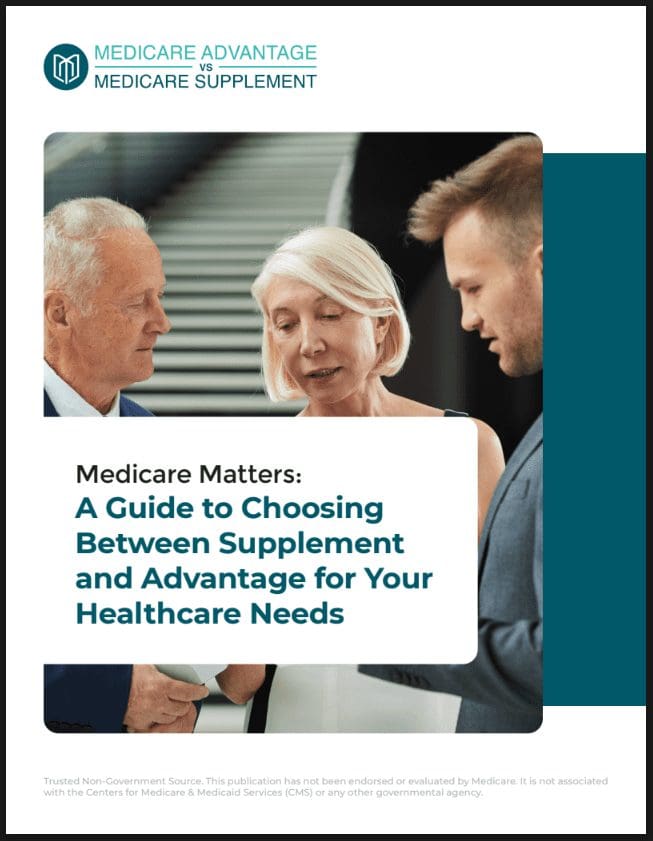Key Takeaways
- Medicare eligibility extends beyond age, encompassing various conditions, including disabilities and chronic illnesses.
- Individuals under 65 may qualify for Medicare due to disabilities or specific health conditions, ensuring broader access to healthcare.
Medicare Eligibility: From Age to Disability, Here’s What Really Counts
Navigating Medicare eligibility can seem complex, especially with varying age limits, disabilities, and health conditions that all play a role. Understanding how Medicare works and what factors determine eligibility can help individuals ensure they qualify for essential healthcare coverage. While many assume that age alone dictates eligibility, there are other important criteria that broaden access to this critical program. Let’s explore how both age and disability open the door to Medicare coverage and what really counts.
Age as the Primary Medicare Eligibility Factor
The most widely known way to qualify for Medicare is through age. Once an individual turns 65, they are typically eligible for Medicare, even if they are still employed or covered by another insurance plan. At this milestone, individuals are encouraged to apply for Medicare to ensure they receive the benefits they may need during retirement.
However, it is important to note that even if someone is still working and has employer-sponsored insurance, they can still enroll in Medicare. Many people choose to delay their Medicare Part B coverage if they are covered through an employer’s plan, but once they retire, Medicare becomes their primary source of healthcare coverage.
Enrollment in Medicare at 65 also brings about several decisions regarding which parts of Medicare—such as Part A, Part B, and additional supplemental options—are best for an individual’s needs. It is essential to research these choices carefully to avoid any delays in coverage or penalties for late enrollment.
Automatic Enrollment for Some 65-Year-Olds
If an individual is already receiving Social Security benefits when they turn 65, they are automatically enrolled in Medicare Part A and Part B. Part A, which covers hospital insurance, is typically premium-free for most people who have worked and paid Medicare taxes for at least ten years. Part B covers medical insurance and requires a monthly premium. However, individuals still have the option to opt out of Part B if they have other coverage that they prefer to use at that time.
Understanding Disability-Based Medicare Eligibility
While age 65 is the most common gateway to Medicare, individuals under 65 may also qualify due to disabilities. If someone has been receiving Social Security Disability Insurance (SSDI) for at least 24 months, they automatically become eligible for Medicare regardless of their age. This provides a critical safety net for individuals who may have lost access to employer-sponsored insurance due to their disability.
Medicare coverage for those with disabilities functions similarly to coverage for seniors, with access to Medicare Part A, Part B, and options for supplemental insurance plans. These individuals must also navigate decisions on whether they need additional prescription drug coverage (Medicare Part D) or other supplemental coverage.
Special Conditions for Immediate Medicare Access
Certain health conditions can grant immediate access to Medicare, regardless of age or how long an individual has been receiving SSDI. For example, individuals diagnosed with end-stage renal disease (ESRD) or amyotrophic lateral sclerosis (ALS, also known as Lou Gehrig’s disease) qualify for Medicare without waiting for the 24-month SSDI period.
-
End-Stage Renal Disease (ESRD): Individuals with ESRD can enroll in Medicare as soon as they begin dialysis or receive a kidney transplant, whichever comes first. This unique provision helps individuals with this severe condition access critical care without delay.
-
Amyotrophic Lateral Sclerosis (ALS): Those diagnosed with ALS qualify for Medicare automatically, and their coverage begins immediately upon receiving SSDI benefits. Given the aggressive nature of ALS, this provision ensures that individuals can access the necessary medical services as soon as possible.
Medicare Part A vs. Part B: What Do They Cover?
Whether qualifying through age or disability, understanding the difference between Medicare Part A and Part B is crucial for navigating Medicare effectively.
-
Medicare Part A (Hospital Insurance): Part A helps cover hospital stays, skilled nursing facility care, hospice care, and some home health services. For most people, this part is premium-free if they or their spouse have worked and paid Medicare taxes for a significant portion of their lives.
-
Medicare Part B (Medical Insurance): Part B covers medical services such as doctor visits, outpatient care, durable medical equipment, and preventive services. Unlike Part A, Part B requires a monthly premium, which can vary based on income.
Both parts are fundamental to understanding how Medicare helps cover different aspects of healthcare, whether for seniors or individuals with disabilities.
Late Enrollment Penalties: What You Need to Know
It’s important to enroll in Medicare during your initial enrollment period to avoid late enrollment penalties. For most people, this period begins three months before turning 65 and lasts for seven months in total. Failure to sign up for Medicare Part B when first eligible can lead to a higher monthly premium for as long as you have Medicare. This is a key reason why planning ahead and enrolling during this initial period is critical.
For those under 65 and receiving SSDI, enrollment in Medicare occurs automatically after 24 months of benefits, so there is typically no risk of late penalties. However, for those who delay enrollment for various reasons, understanding the potential penalties is crucial to avoid additional costs.
How Medicare Helps Those with Disabilities Manage Healthcare Costs
Individuals with disabilities often face higher medical costs due to the nature of their conditions. Medicare provides much-needed financial relief by covering many healthcare services. Through Medicare, individuals can access hospital care, physician services, home healthcare, and prescription drugs.
The healthcare challenges that people with disabilities face can be both physically and financially demanding. Medicare offers significant help by covering these essential services, which helps alleviate some of the financial burdens associated with long-term disabilities. However, it is essential to explore supplemental coverage options that can reduce out-of-pocket expenses, especially for services not fully covered by Medicare Parts A and B.
Medicare Advantage Plans for Broader Coverage
For those who need additional coverage beyond Medicare Parts A and B, Medicare Advantage Plans may offer a viable option. These plans, provided by private companies approved by Medicare, often include additional benefits such as prescription drug coverage, dental, vision, and hearing services. Although enrollment in these plans is entirely optional, they offer broader coverage for individuals who need more than what Original Medicare provides.
Medicare and Medicaid Dual Eligibility
Some individuals may qualify for both Medicare and Medicaid, a situation known as dual eligibility. Dual-eligible beneficiaries typically have limited income and resources, and Medicaid helps cover Medicare premiums, deductibles, and co-payments. This dual coverage ensures that individuals can receive the comprehensive healthcare they need without facing excessive financial strain. Eligibility for Medicaid is determined by income and other factors, which vary by state, so individuals should check their state’s guidelines to determine if they qualify.
Important Medicare Enrollment Periods
Understanding the various enrollment periods for Medicare ensures that individuals don’t miss out on essential coverage:
-
Initial Enrollment Period (IEP): This is the first opportunity to enroll in Medicare, lasting seven months around an individual’s 65th birthday.
-
General Enrollment Period (GEP): Occurs annually from January 1 to March 31 for those who missed their initial period. Coverage begins on July 1, but late enrollment penalties may apply.
-
Special Enrollment Period (SEP): For those who delayed Medicare enrollment due to having employer-sponsored coverage, a SEP allows enrollment without penalties once employment ends.
Final Thoughts on Medicare Eligibility
Medicare eligibility is a broad concept that goes beyond age. While turning 65 is a key moment for many, individuals with disabilities, chronic illnesses, or unique conditions like ESRD and ALS may qualify much earlier. Understanding the eligibility requirements and navigating the enrollment periods ensures that individuals receive the coverage they need without unnecessary delays or penalties. By planning ahead and exploring additional coverage options, beneficiaries can make informed decisions about their healthcare needs.
Contact Information:
Email: [email protected]
Phone: 2025554567










